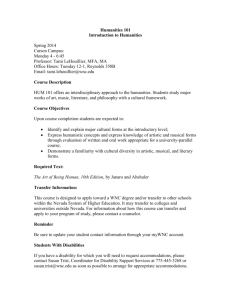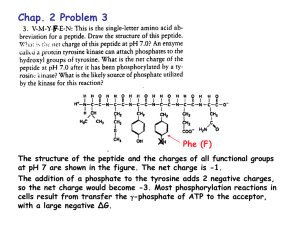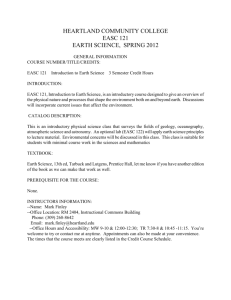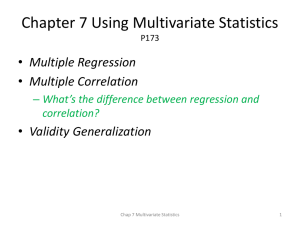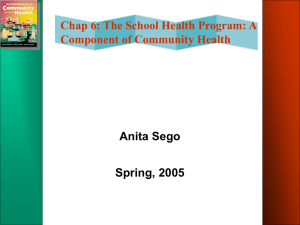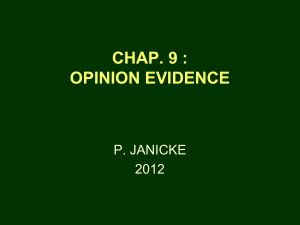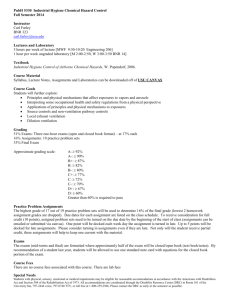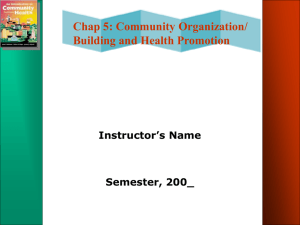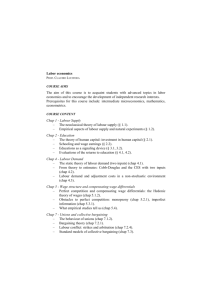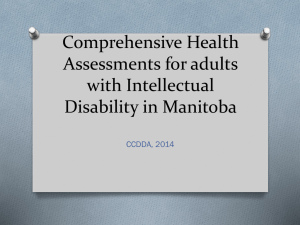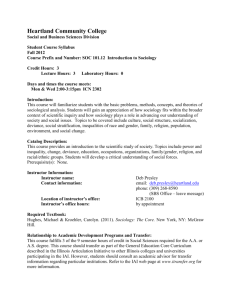CI5585375101 - Syllabi - Appalachian State University
advertisement
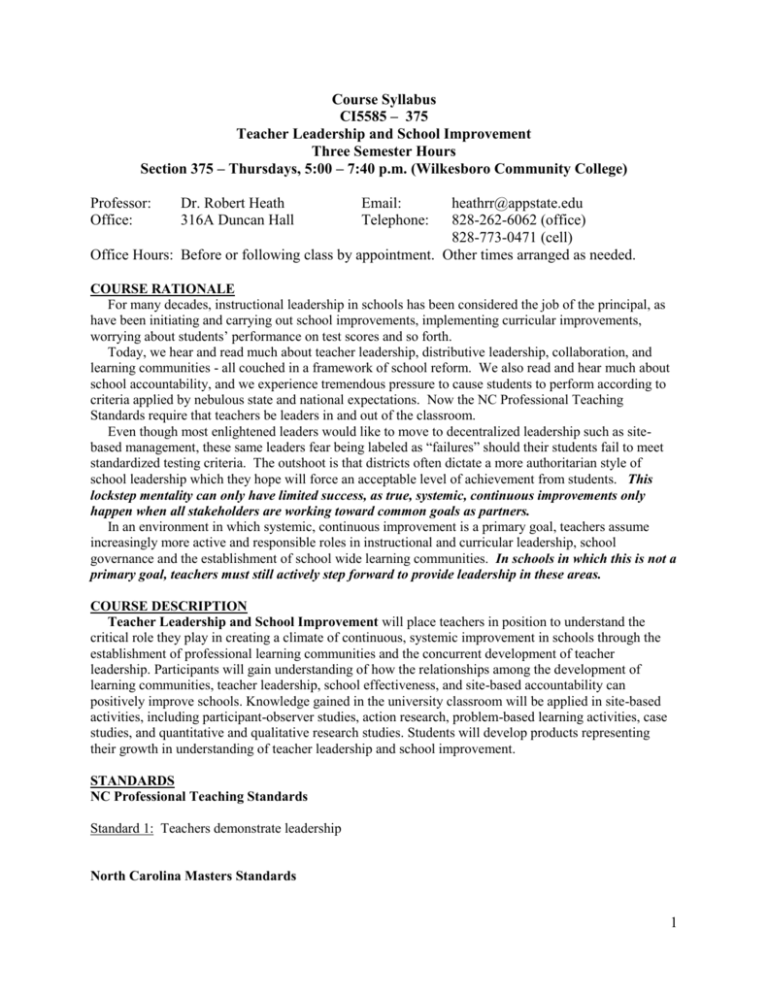
Course Syllabus CI5585 – 375 Teacher Leadership and School Improvement Three Semester Hours Section 375 – Thursdays, 5:00 – 7:40 p.m. (Wilkesboro Community College) Professor: Office: Dr. Robert Heath 316A Duncan Hall Email: Telephone: heathrr@appstate.edu 828-262-6062 (office) 828-773-0471 (cell) Office Hours: Before or following class by appointment. Other times arranged as needed. COURSE RATIONALE For many decades, instructional leadership in schools has been considered the job of the principal, as have been initiating and carrying out school improvements, implementing curricular improvements, worrying about students’ performance on test scores and so forth. Today, we hear and read much about teacher leadership, distributive leadership, collaboration, and learning communities - all couched in a framework of school reform. We also read and hear much about school accountability, and we experience tremendous pressure to cause students to perform according to criteria applied by nebulous state and national expectations. Now the NC Professional Teaching Standards require that teachers be leaders in and out of the classroom. Even though most enlightened leaders would like to move to decentralized leadership such as sitebased management, these same leaders fear being labeled as “failures” should their students fail to meet standardized testing criteria. The outshoot is that districts often dictate a more authoritarian style of school leadership which they hope will force an acceptable level of achievement from students. This lockstep mentality can only have limited success, as true, systemic, continuous improvements only happen when all stakeholders are working toward common goals as partners. In an environment in which systemic, continuous improvement is a primary goal, teachers assume increasingly more active and responsible roles in instructional and curricular leadership, school governance and the establishment of school wide learning communities. In schools in which this is not a primary goal, teachers must still actively step forward to provide leadership in these areas. COURSE DESCRIPTION Teacher Leadership and School Improvement will place teachers in position to understand the critical role they play in creating a climate of continuous, systemic improvement in schools through the establishment of professional learning communities and the concurrent development of teacher leadership. Participants will gain understanding of how the relationships among the development of learning communities, teacher leadership, school effectiveness, and site-based accountability can positively improve schools. Knowledge gained in the university classroom will be applied in site-based activities, including participant-observer studies, action research, problem-based learning activities, case studies, and quantitative and qualitative research studies. Students will develop products representing their growth in understanding of teacher leadership and school improvement. STANDARDS NC Professional Teaching Standards Standard 1: Teachers demonstrate leadership North Carolina Masters Standards 1 Standard 3: Research The candidate uses research to examine and improve instructional effectiveness and student achievement. Standard 5: Professional Development and Leadership The candidate engages in continued professional development and provides leadership at the classroom, school, and community levels, and within the profession. RCOE CONCEPTUAL FRAMEWORK The Reich College of Education Conceptual Framework provides a broad description of how we believe people learn and develop, and how teaching, and other helping oriented interactions should occur. We envision graduates of our programs as thoughtful professionals, characterized by a love of learning (life long learners) and the capacity to adapt to change. The Conceptual Framework forms the basis for decisions about curriculum development, practices, and service while also offering a guide for interactions among faculty, students, and staff. The Framework is based on socio-cultural tenets and is anchored in the historical foundations of American education. The five principles that together constitute the RCOE Conceptual Framework include the following: Learning occurs through participation in a community of practice; Knowledge is socially constructed and learning is social in nature in a community of practice; Learners proceed through stages of development from novice to expert under the guidance of more experienced and knowledgeable mentors in the community of practice; An identifiable knowledge base that is both general in nature and also specific to specialties emerges from the community of practice; All educators and human service professionals develop a set of dispositions reflecting attitudes, beliefs, and values common to the community of practice. In this course we will learn about, and practice these principles. Through readings, common activities, and class discussions we will develop our own community of practice. See the RCOE website for a more lengthy description. REQUIRED TEXT Barth, R. S. (2004). Learning by heart. San Francisco, CA: Jossey- Bass. COURSE REQUIREMENTS 1. Course Readings and Assignments: You will be responsible for all readings and assignments as listed on the syllabus and/or assigned in class. This class is highly dependent on participant interaction regarding your knowledge, skills and understandings; therefore, your preparation for class is critical. 2. Classroom Leadership: As students involved in a professional learning community, you are expected to share in the leadership of class discussion. Teacher leadership is demonstrated in a variety of ways. Good leadership isn’t necessarily leading a discussion, or guiding a group through a change. Much leadership is demonstrated in more subtle ways, such as improving curriculum, or providing positive, productive insight in meetings. Good leaders know when to listen as well as when to speak. The success of your leadership will be reflected in your ability to critically reflect on your material, ask and address thought-provoking questions, and in your ability to engage class members in reflection upon the material presented. NOTE: this is not about who gets to be in charge of a group 3. Projects, Research and Article Reflections: 2 A. You will write four article reflections based on articles you find on specific topics related to your Teacher Leadership Study and School Improvement Project. These are due on specific dates, and will be the basis of many of our class discussions. B. You will conduct a Teacher Leadership Study and Interview. This is a research paper in which you will explore the literature on teacher leadership, and its impact on professional learning communities and/or staff development and/or student learning and/or school improvement. A primary source of information for this paper will be your Teacher Leader Interview. You will use much of the information from this study in your School Improvement Project. The Teacher Leader Interview portion of the paper will consist of an interview with a recognized teacher leader in a school. This will be an in-person interview (no phone or email interviews), utilizing a predetermined set of question you will develop, and must be conducted with a full-time classroom teacher. Information from this interview will be one source you will use in your Teacher Leadership Study. You will conduct a 10-minute presentation of your findings to the class. C. You will be required to participate in a group School Improvement Project, which will involve your engagement as teacher leaders in a school by developing a plan that addresses a critical need. You will submit a written School Improvement Project plan and reflection, and will present it to your peers in the class. The presentation will be approximately 30 minutes in length. This is your culminating activity, and you are encouraged to invite your principal and other significant school personnel to the presentation. All prior work in the class contributes to this project. All Papers will be double spaced, 12 point, Times New Roman (or comparable) font and written and cited using correct APA format. Papers will have a cover page with the course name, student’s name, the name of the project, and be stapled. Pages will be numbered. Do not place sheets in plastic protectors, folders or notebooks, with the exception of the SIP, which is to be in a 3-ring binder. GRADING Points Articles/Reflections 4 @ 50 pts. Each = Teacher Leadership Study and Interview School Improvement Project Class participation, Attendance TOTAL 200 pts. 200 pts. 300 pts. 50 pts. Grade A AB+ B BC+ C CF COURSE EXPECTATIONS Points 709 – 750 672 – 708 649 – 671 627 – 648 604 – 626 574 – 603 551 – 573 521 – 550 0 – 520 Percent 95 – 100 90 – 94 87 – 89 84 – 87 81 – 83 77 – 80 74 – 76 70 – 73 below 70 Responsibility Individual Individual Group/Team Individual 750 points Due Date 1/28, 2/4, 11, 3/25 3/4 4/22 3 Regular attendance is mandatory and will be taken into consideration for your final grade. Excessive unexcused absences will result in the lowering of a grade. Please notify the instructor prior to an absence. Masters at Education writing is expected to be at a high level of expertise, including effective and appropriate use of research, grammar, sentence structure and spelling. If you struggle in writing, it is important that you seek outside assistance on your own, to ensure that your grades reflect your efforts in the manner you want. You will be expected to cite all references using American Psychological Association (APA) format. You will have a copy of a Power Point on APA style, which will have samples of most citations you will need. Other resources for this format can be found at http://citationcenter.net and http://library.duke.edu/research/citing/within/apa.html . Lack of, or improper use of APA will be negatively reflected in your grades. Academic honesty and integrity are expected of all students. Any work that you or your team submit must be your own work. Any ideas, information, approaches, or formats that you use based on the work of others must be acknowledged by citing the appropriate sources. All assignments must be submitted on time in order to be awarded the maximum number of points. All assignments must be word-processed and spell checked. No assignments are to be in plastic (or other) sheet protectors, folders or notebooks unless otherwise noted. All work is to be double spaced, 12 pt. Times New Roman (or comparable) font with pages numbered. All work is to have a cover sheet citing the name of the course, the name of the project, the date, and your name. Papers with a grade lower than “A” may be rewritten. See the professor for specific information regarding any paper you wish to rewrite. INCLEMENT WEATHER The Office of Extension and Distance Education at Appalachian State University post cancellations for evening courses due to inclement weather and other emergencies. It is helpful to check this website weekly before class at http://www.ext-dl.appstate.edu/cancellations.html. In addition, you may want to check the website for the community college. Whenever courses have been cancelled for the community college, our class will not meet. Spring, 2010 4 CLASS SCHEDULE, ASSIGNMENTS Wk 1 Date 1/14 Topic Introductions Course Overview, Syllabus, Descriptions of Assignments Assignments Due/Discussion Topics Purchase Textbooks What is Teacher Leadership? What is School Improvement? 2 1/21 3 1/28 APA Introduction Schools as Systems Building Leadership Capacity Organize Project Teams The Change Process 4 2/4 -Barth: Forward, Introduction Chap. 1 (Thinking Otherwise), Chap. 2 (Culture in Question) Chap. 13 (Some Questions) -Barth: - Chap. 3 (Community of Learners) Chap. 4 (Information Rich…) -Power Point -Article 1 Due: School improvement and the change process -Barth: Chap. 5 (Exploration) -PowerPoint 5 6 7 2/11 2/18 Characteristics of a Professional Culture in Schools Work on Teacher Leader Interview Questions Writing Research Seminar Building a Community of Learners Adult Learners Professional Development Principles of Effective Leadership 2/25 Understanding the Effective Uses of Power, Authority, and Control Teachers as Leaders Professional Learning Communities 8 3/4 9 10 3/11 3/18 Teacher Leadership Study and Interview presentations Spring Break Teacher Leadership and School-based Accountability. Team discussion of School Improvement Projects. -Article 2 Due: Learning Communities -Barth: Chap. 6 (Craft Knowledge) Chap. 7 (Reflection) Chap. 8 (Teacher Leadership) -Article 3 Due: Empowering Teachers Barth: Chap. 9 (Impediments and Opportunities) Chap. 10 (Teachers and Principals) -Functions of leadership -Reframing organizations (Discussion) -Barth: Chap. 12 (Conditions for Learning NOTE: When reading this Chap., read for you as a teacher leader, NOT as though you are the principal) Chap. 13 (Questions, again) Chap. 14 (Risk) -Teacher Leadership Study and Interview Presentations/papers due Teacher Leadership Presentations (as needed) -Barth: Chap. 15 (Coming to a Vision) Review Barth, Ch. 2, 3, 5, 7, 8, 9, 10 5 11 3/25 Synthesizing and Applying the Characteristics of High Performing Schools 12 4/1 13 4/8 Teaching and Leading for Equity and Social Justice Roles and Responsibilities for Teacher Leaders in Schools Continuous School Improvement Concepts Data Driven School Reform What’s Worth Fighting For? Work in teams on projects. 14 4/15 15 4/22 No whole class meeting; work in teams on projects School Improvement Presentations • Present outcomes, lessons learned from your SIP. • Discussion about SIP: results, challenges and successes. Course Closure Bring data to be used in your School Improvement Project to this class. Be prepared to discuss what you are proposing to do based on the data. Article 4 Due: Creating High Performing Schools -Site-based school improvement teams -Community involvement and participation -Use/misuse of data Building shared beliefs Project workday School Improvement Project Due Bring to class: Copy of your plan SIP PowerPoint presentation 6

